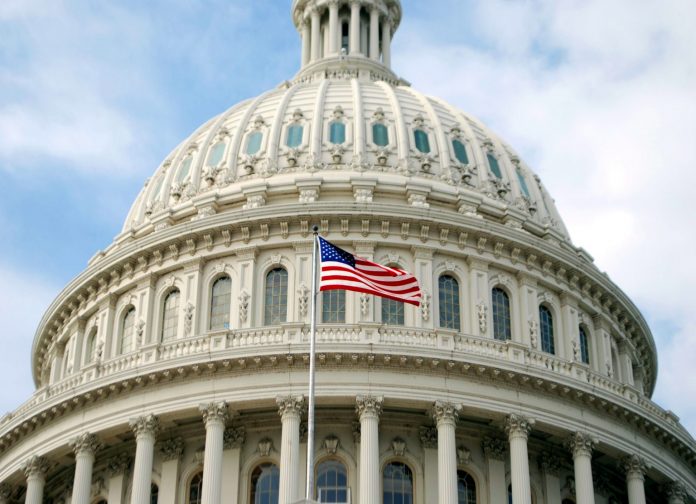President Joe Biden‘s political team is hard at work calculating what policy changes might halt the dangerous rise of former President Donald Trump in the polls. I have a proposal that is obvious yet politically elusive.
According to reports, options under consideration include prescription drug caps, taxing the wealthy and reining in corporate price-gouging. Those ideas are important and they should certainly be pursued, but it may not be enough in the berserk election year 2024.
There are two issues driving voters in the center, who might be persuadable, to support a miscreant like Trump. One (as I have written on these pages) is the progressive overreach known as wokeness, which is driving otherwise sane people insane. But there’s not much to be done about it quickly—not without alienating minorities and youth that Biden needs to turn out in November. The other is border security and illegal immigration. And here something can be done.
While numbers can be distorted and the Republicans will always scaremonger, there is little dispute that illegal entries across the Mexico border are surging. Homeland Security reports an average of 200,000 „encounters” a month—way up from a few years ago—and that 670,000 people managed to get through in 2023, adding to the roughly 11 million estimated to already be inside the country.
Seeming to recognize the problem at last, Biden has signaled a willingness to finally funnel serious funds to border security in exchange for Republican acquiescence to aid for Ukraine. The real question is why this needs to be a concession; Biden is being stymied on this by unreasonable people who seem to want the border to be porous.
What do the voters think? A Wall Street Journal poll last month showed that immigration was the second-most important issue to voters after the economy, and that only 27 percent of voters approved of Biden’s handling of it (his alarming approval rating is scarcely higher).
There is a narrative on the American far left that suggests that for people to be worrying about this is somehow racist. The falseness of that is evident in the attitudes of Hispanics themselves.
It is true that the Democrats’ Hispanic Caucus might make things difficult if Biden decided on some policies and rhetoric to signal a change. But they are misaligned with their own public: Pew finds that 56 percent of naturalized Hispanics in the United States believe that border security should be tightened to reduce illegal crossings—and 83 percent of all Hispanics think the system either needs „major changes” or to be „completely rebuilt.”
Sure, the specific border security heartlessness during the Trump Administration was rooted in racism. And yes, the Republicans are wrong and often racist in insisting immigrants bring crime, as Trump does. Studies suggest they are more law-abiding than veteran Americans.
The problem is elsewhere and is simpler: porous borders are no way to run a country and build a society. Not only is the Democratic position a terrible political miscalculation, but it also reflects confusion about the logic of countries. This is rooted in the Peace of Westphalia, the 1648 treaties that ended the 30 Years’ war in Europe, accelerated the crumbling of empires and helped establish the principles governing relations between nation-states, like sovereignty, non-interference, and territorial integrity.
Put another way, barring some exceptional state of illegitimacy, countries have every right to protect their borders, and there’s no obligation to allow everybody in. To do otherwise would be to expose a society, infrastructure, and economy to shocks and pressures that most populations—certainly in successful countries—do not desire.
This is legitimate even if the main reason is a desire to preserve a cultural or ethnic majority. Ask the 100-odd million people of Japan whether they would like to offer the more than 1 billion Chinese the right to move to their islands, and rest assured that the answer will be no. The Japanese want Japan to be Japanese and not Chinese. And vice versa.
This is even true in the European Union, where the law says that all Germans have the right to move to fellow EU member Portugal. The Portuguese do not desire this—they want their area of the union to have the characteristics of Portugal, whatever these may be (chiefly the language, but also a strange talent at soccer). There is a reasonable assumption that people will not move en masse, but the fuzziness of it is a main reason for the rampant ambivalence about the EU.
You know how it ended in the case of Britain, where people started to feel like they would be flooded with non-Brits. A huge economic price was paid for Brexit—partly because some people were fooled by lying politicians, but also because some people simply wanted to control the borders.
There is nothing wrong with that, just as there is nothing „Jewish-supremacist” about Zionism for wanting there to be a Jewish nation-state in which Jews—however they define themselves—are the majority. The question is what steps are taken to achieve this; some, like expulsions, are inadmissible.
The Westphalian ideas remain valid also in the case of countries that are not, strictly speaking, ethnicity-based nation-states—like the United States. The U.S. is not just composed of many „states” that amount to highly autonomous regions—but is also an amalgam of huge ethnic diversity, obviously.
The U.S. correctly celebrates this diversity as a source of dynamism and other advantages. But for the past century or so, the U.S. has also attempted to ensure that the pace of immigration is controlled. The hope was both to enable the economy to absorb the newcomers, and to ensure that the existing culture—while enriched by the ever-widening tapestry—would not be totally upended.
That’s reflected in the motto of the country which one finds on dollar bills: E Pluribus Unum. It means out of many, one. It does not mean out of many, many.
And Americans tend to support all of this, which explains their current unhappiness.
The Hispanics who arrived legally also seem to want the U.S. to remain the U.S. in fundamental ways. If they wanted to live in Central America, they might have stayed there. The far left’s misunderstanding of the Hispanics on this issue is reminiscent of the clueless do-gooders who, for some patronizing reason, tried to impose the term LatinX on this population, only to find the targets of their sensitivity either indifferent or hostile.
Lastly, there is little meaning to democracy without citizenship, where citizenship bestows suffrage. And this attaches to controlling immigration.
There were free and fair elections in apartheid South Africa, but they were not democratic because the black majority could not vote. In the U.S. context, the presence of millions of immigrants who lack citizenship undermines (along with the Electoral College, Republican voter suppression, and Trump) American democracy. Fixing that by handing citizenship to everyone who wants it would obviously be absurd, inviting billions to arrive.
So, the U.S. must control its borders for real. The discussion should simply be logistical, because of the length of the border with Mexico, and how much of it is wild and unpopulated—complex questions for another day, because my point here is political.
The Republicans should be totally unelectable, given that their opposition to gun control, socially unjust taxation policy, flirtation with abortion bans, climate change denial, and undermining of universal health care all run violently against majority public opinion.
The progressive wing’s excesses have given the Republicans a major gift, yes. The Democrats‘ overall wobbliness on the border may be an even bigger one.
- Dan Perry is managing partner of the New York-based communications firm Thunder11. He is the former Cairo-based Middle East editor and London-based Europe/Africa editor of the Associated Press. Follow him at danperry.substack.com.

















